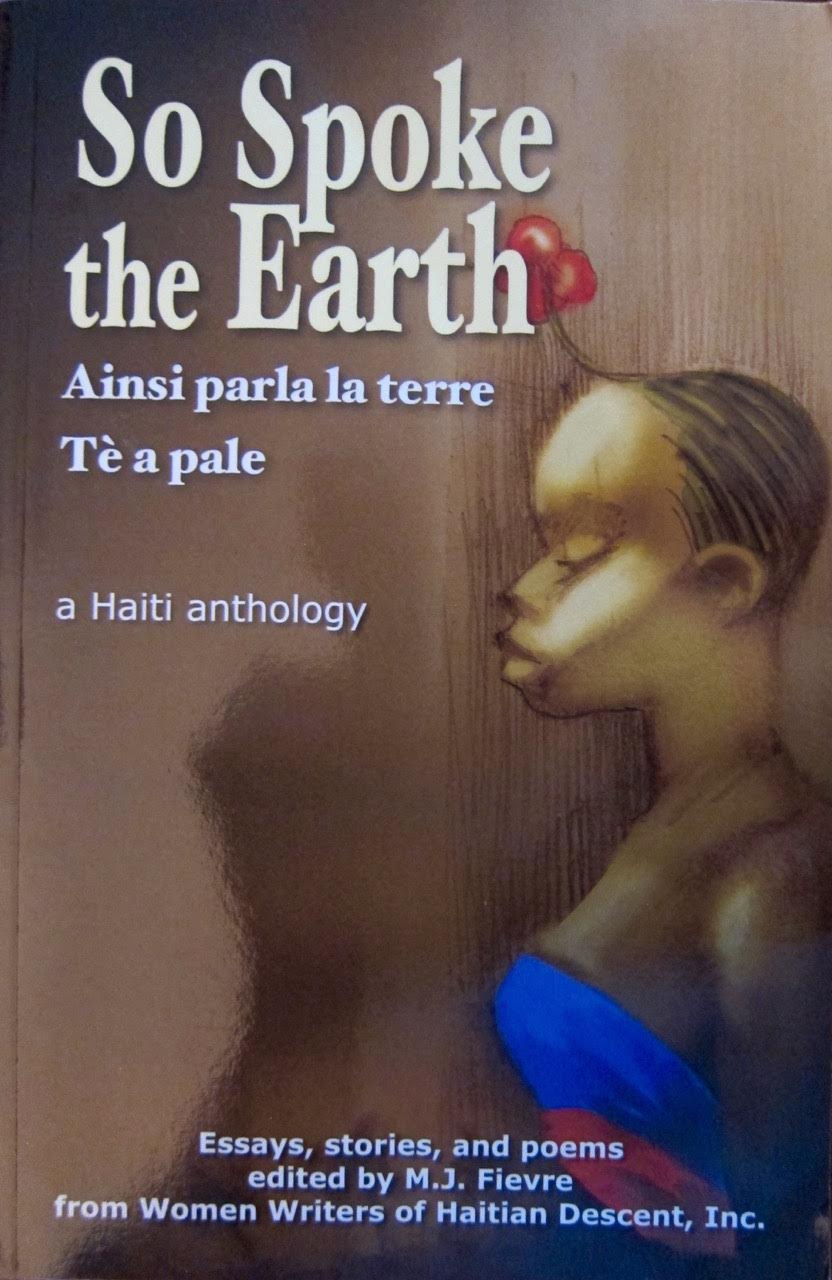From Haiti, with Love
Anthology: So Spoke the Earth
It took a good part of the morning on the road to reach the mountaintop where, surprisingly, stands a small Vodou temple whose front facade displays a large, vivid mural.
From the cement floor beneath a portrait of the Black Madonna on the mural, the dog quietly gets up. He comes towards us wagging his tail feebly and wearing a grin. An incident of sunlight brings out the yellow in his eyes as he stops to examine us.
Then, just as silently and purposefully as he had come to greet us, he turns around and goes back to his spot on the dusty floor to keep what seems an active and meaningful watch.
I try to entice him to come back and get the pat on the head and his rear-end any dog might have felt to be its due after having taken the trouble of giving a welcome, as this fellow had, however discreetly so. But he just wags his tail again, albeit more convincingly, disturbing the dust and shooing the few flies that find it worthwhile to hover over that part of his anatomy.
The tail wagging seems to carry a life of its own, to be a presence distinct from that of the dog and mine, exhibiting its character and using its own vocabulary. Perhaps it is an omen.
This Sunday on a Haitian mountaintop, I am trying to link the past to the future.
I am on my way to Jacmel, one of the prettiest sea-towns of all of Haiti. And if on this mountaintop, looking at the dog, on this curvy, dangerous, too narrow a road, I am not yet on the spot from where one can start catching glimpses of the shimmering blue waters of the Jacmel bay, certainly, the blue haze of the horizon gives a good illusion and foretaste of it.
There are times in life when a sudden reversal of a natural order of things occurs, and the future seems clearer than the past. And yet, when the future will have become the past left behind, and I can reflect on it, it might then appear, as all of my past does already, like something brought on by forces unforeseen and unforeseeable.
So it could be that someday I’ll find myself here again, on this red earth road to Jacmel, but this time standing with my adopted child, Milande, telling her that, “My life is a thing that just happened to me, inexplicably, forgivably.”
Perhaps then, I will feel like I am an old philosopher, and not a hesitant animal like this dog, lying in the shadow, reluctant to come out in the sun and join another on the road, a feeble movement of the heart and tail being all I can muster.
At this moment when the dog and I look at each other on the mountaintop, while I am on my way to Jacmel where Milande’s birth family comes from, it is not clear who is who.

